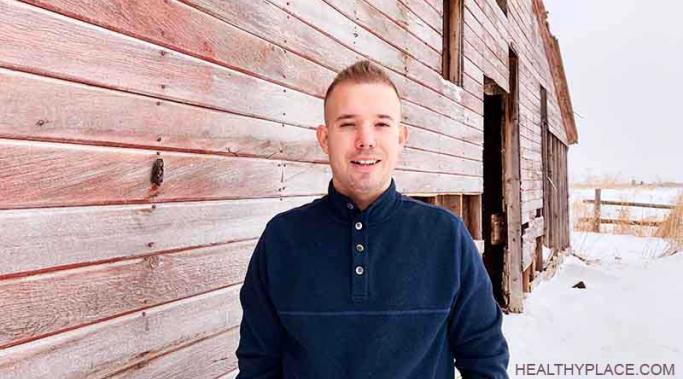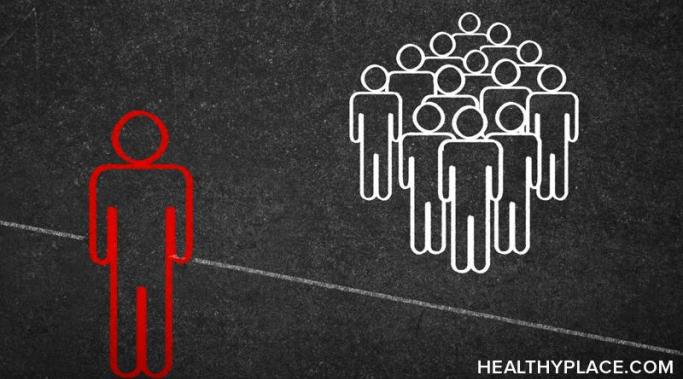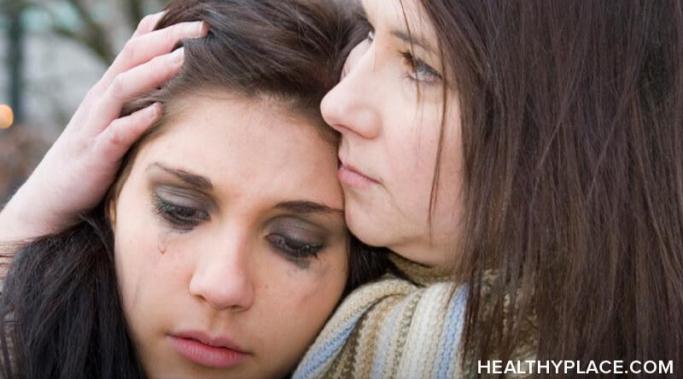Now that the holidays are over, I can sit back and congratulate myself on a job well done. I got through the holidays with lots of joy—and without having a meltdown. That can be hard for anyone, not just someone like me with schizoaffective disorder. I know the holidays are supposed to be the happiest time of the year, but all this pressure to be worry-free is one of the reasons the holidays can be so stressful, along with shopping, planning, and social commitments. Here’s how this schizoaffective got through the holidays without having a major freak-out.
Creative Schizophrenia
I’m Randall Law, the co-author of the blog, "Creative Schizophrenia." I’m an often clueless father of three, a work in progress husband to one, a rabid sports fanatic and an unemployed physician assistant learning to live with schizophrenia while renovating a farmhouse built in 1910.
The intensity of my anxiety has me on a roller coaster. After a flare-up of my schizoaffective anxiety in September and October, my symptoms became really manageable again in November. I felt great. But then, when December came around, I started reeling in anxiety again. I’m not sure why I felt so good in November, or why my schizoaffective anxiety flared up again just in time for the holidays. But I have some ideas about why the intensity of my anxiety keeps changing.
I don’t go to parties, as I have confided before. This is especially hard to pull off during the holiday season. I used to party when I was younger, but now I have less of a tolerance for the noise and confusion. Here’s why this schizoaffective avoids the holiday mayhem.
Lately, I’ve been cultivating what I call a philosophy of coziness to cope with schizoaffective anxiety. I got the idea from the Danish concept of hygge (pronounced hyoo-gah) which often translates to mean a certain kind of coziness. I was going to write this article on how hygge helps with my schizoaffective disorder, but I’m no expert on hygge—I literally discovered it less than two weeks ago. But hygge is becoming a springboard to create my own sense of inner coziness, and that’s helping with my schizoaffective anxiety.
I've been living with schizoaffective symptoms for 20 years. In fact, this holiday season marks the 20th anniversary of my first and only schizoaffective psychotic episode. Since I'm 39 years old, that means I've had schizoaffective disorder for a longer time than I'd lived without it. It means I've grown and changed with the illness. Not only am I a different person than I was without schizoaffective disorder, but I'm a different person than I was when I first became ill. I wasn't going to write about this, but the anniversary of living with schizoaffective symptoms is making those symptoms worse.
I've been taking a ballet class to help with my schizoaffective disorder, but still, schizoaffective anxiety almost made me leave. Exercise helps with mental health--plus, it's fun and I enjoyed ballet all through my childhood. But in my most recent class, I had a schizoaffective anxiety episode. Here's what happened.
The stigma against schizophrenia caused me to be dishonest. When I transferred from the Rhode Island School of Design (RISD) to The School of the Art Institute of Chicago (SAIC), everyone wanted to know why. This puzzled me because it was obvious that SAIC is a top art school by global standards. Still, I wouldn’t have transferred if I hadn’t had a schizoaffective psychotic episode, but I couldn’t tell people that because of the stigma against schizophrenia.
I suffer from schizoaffective suicidal ideation. I’ve never made an attempt on my life, and I’ve never had a plan to end my life. But I think about doing so. I think about it a lot. I think about it so much that I’ve gone to the emergency room multiple times, and have even been hospitalized for schizoaffective suicidal ideation.
Having a regular sleep cycle is important, but for years after I was first diagnosed with schizophrenia and then schizoaffective disorder, my sleep cycle became completely reversed. I was up all night and asleep all day. It wasn't until a little over four years ago--just before I started writing for HealthyPlace--that I got a regular sleep cycle back in place so that I'm awake during the day and asleep at night. What a relief. Here's how I did it.









